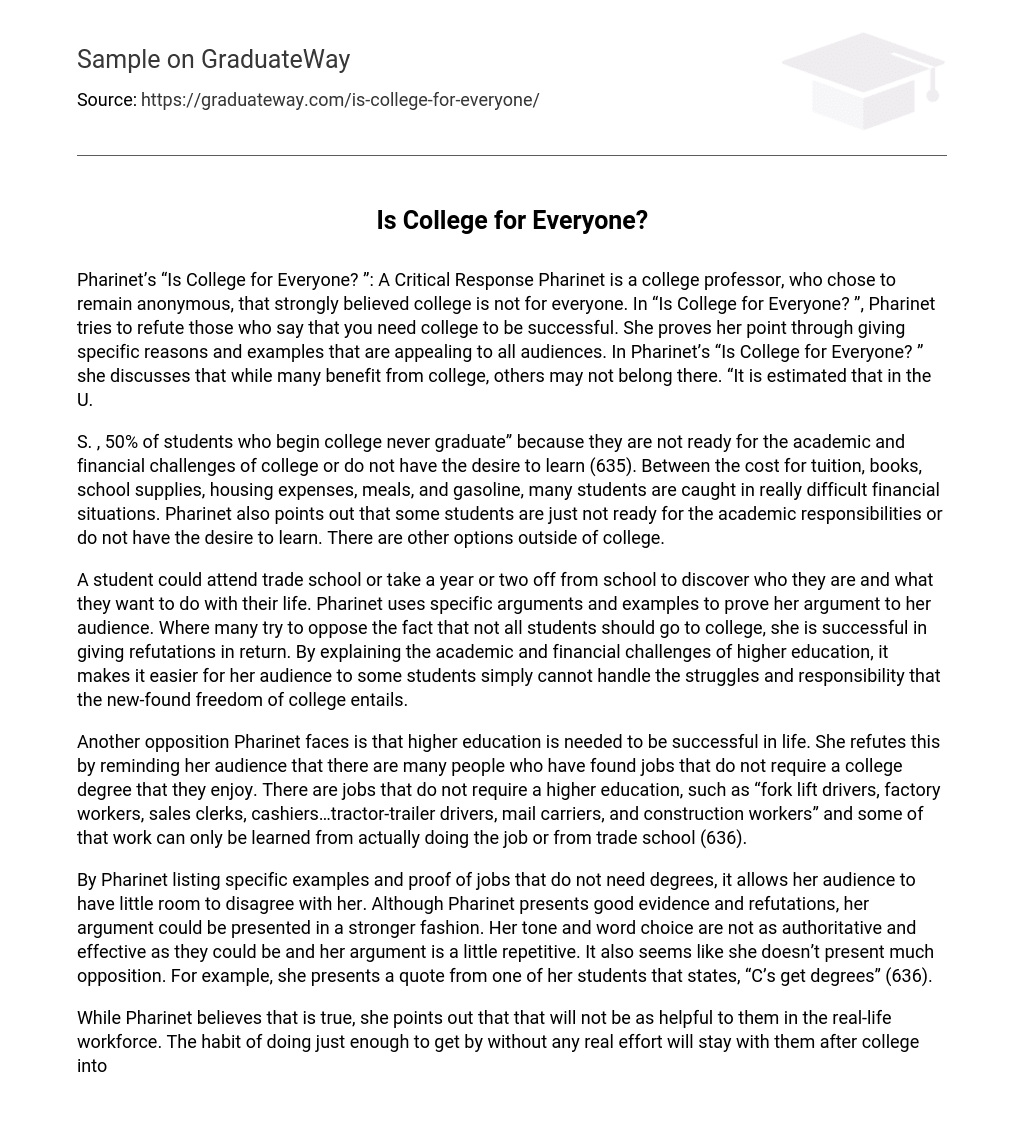In her article “Is College for Everyone?”, Pharinet, an anonymous college professor, challenges the notion that college is essential for success. Contrary to those who hold a different perspective, she provides compelling evidence and illustrations to discredit their arguments, thereby appealing to a wide range of readers.
In her article “Is College for Everyone?”, Pharinet argues that while college can be beneficial for many individuals, it may not be suitable for everyone. She supports this argument by citing statistics that show approximately 50% of students in the U.S. who enroll in college do not graduate due to their lack of readiness or interest in education (635). Additionally, the high costs associated with tuition, textbooks, supplies, housing, meals, and transportation contribute to financial difficulties faced by numerous students. Pharinet emphasizes that some students may not have enough academic preparedness or a genuine desire to learn and suggests exploring alternative paths instead of pursuing a college education.
In her presentation, Pharinet offers students different choices to think about: going to trade school or taking a gap year to discover personal identity and career aspirations. To persuade her audience, she gives specific reasons and instances. Despite facing opposition against the belief that college is not appropriate for every student, Pharinet successfully refutes these arguments by clarifying the academic and financial hardships linked with higher education. In doing so, she assists her audience in realizing that not all students possess the ability to handle the challenges and responsibilities that accompany the newfound freedom of college life.
Pharinet challenges the belief that higher education is essential for success in life, as she acknowledges that there are people who have found fulfilling careers without a college degree. She provides examples of occupations such as fork lift drivers, factory workers, sales clerks, cashiers, tractor-trailer drivers, mail carriers, and construction workers that do not require advanced education. Furthermore, she highlights the fact that some of these professions can only be acquired through practical experience or trade school (636).
Pharinet presents specific examples and evidence of jobs that do not require degrees, leaving little room for disagreement. However, her argument could be stronger if her tone and word choice were more authoritative and effective, and if she presented more opposition. She does acknowledge a quote from one of her students that says, “C’s get degrees” (636).
While acknowledging the truth in Pharinet’s belief, she highlights that relying on this mentality will not benefit individuals in their professional careers. The tendency to exert minimal effort without genuine dedication will persist after college, posing a potential harm. In her article “Is College for Everyone?”, Pharinet presents a reasonably sound argument. She provides substantial examples to support her belief that college is not suitable for everyone, ensuring clarity for her audience. Although the argument could have been stronger and more effective, Pharinet successfully communicates her viewpoint, allowing her audience to formulate their own opinions.





